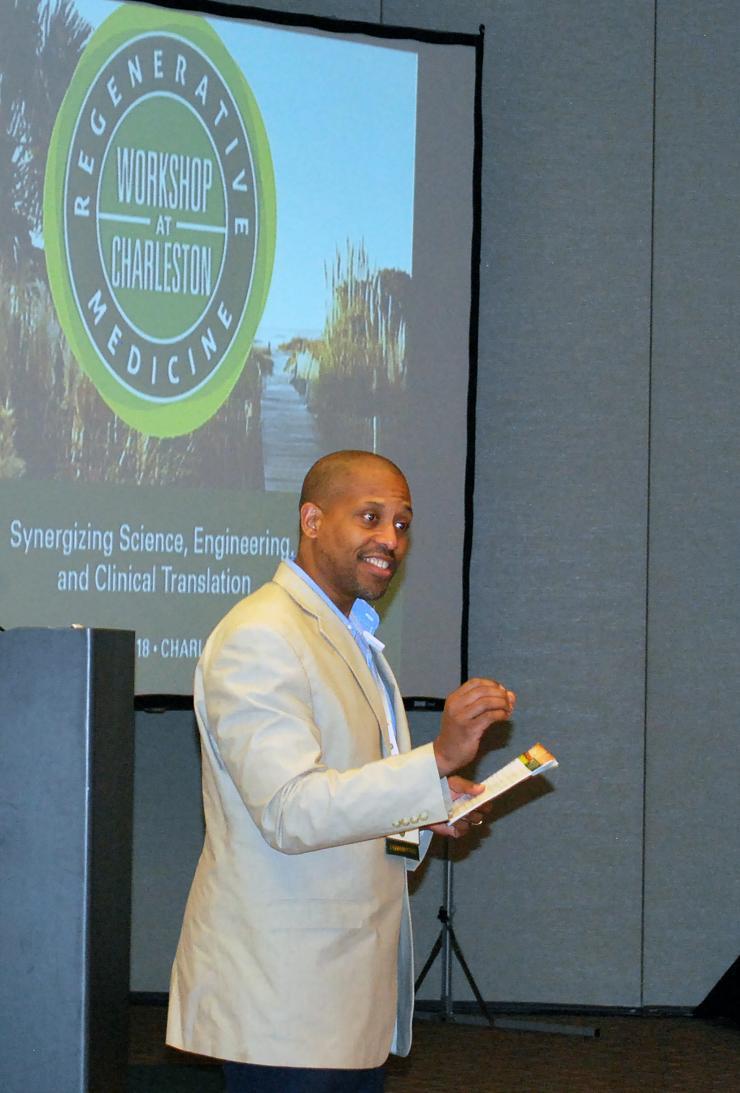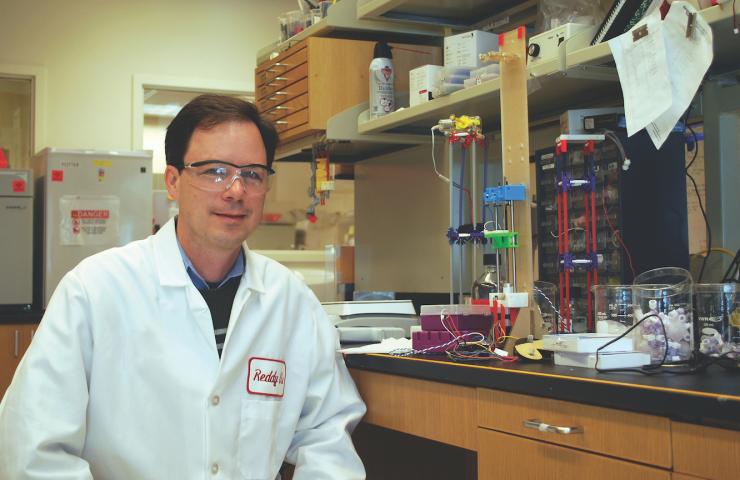Georgia Tech Faculty Collaborate on Childhood Disease
Oct 11, 2018 — Atlanta, GA

Ed Botchwey, Petit Institute researcher and associate professor in the Coulter Department of Biomedical Engineering, keeps the rapid fire session going.
Two researchers with the Petit Institute for Bioengineering and Bioscience at Georgia Tech have been awarded inaugural Aflac Pilot Grants (APG) as part of multidisciplinary teams working to reduce the devastating impact of childhood cancer.
Ed Botchwey and Todd Sulchek, both associate professors in the Wallace H. Coulter Department of Biomedical Engineering at Georgia Tech and Emory University, are collaborating with clinical researchers at the Aflac Cancer and Blood Disorders Center of Children’s Healthcare of Atlanta.
“This unique funding opportunity brings together engineers and biologists to tackle major challenges associated with childhood cancer and blood disorders,” notes Chris Porter, Emory University School of Medicine associate professor and a pediatric hematologist/oncologist at the Aflac Center, who led the pilot grant review committee. “The innovative approaches have the potential to have a big impact in improving care for children.”
Botchwey is partnering with Hyacinth Hyacinth, physician and assistant professor in the Emory School of Medicine, on a project called “Mechanism of stress-induced cognitive deficit in sickle cell disease.” Sulchek and his research partner, Sunil Raikar, also an assistant professor in Emory’s School of Medicine, submitted a successful proposal called, “Microfluidic platform to deliver mRNA knockout reagents for T-cell malignancy directed CAR T-cell manufacturing.”
Each team will receive $50,000 as part of an effort under the APG umbrella designed specifically to support new research collaborations between the Coulter Department and the Aflac Cancer and Blood Disorders Center.
Meanwhile, three other pilot grants of $50,000 each were awarded to researchers within the Aflac Center: Kelly Goldsmith, associate professor, Emory School of Medicine; Curtis Henry, assistant professor, Emory School of Medicine; and Yongzhi Qiu, research associate, Emory School of Medicine.
The Aflac Cancer and Blood Disorders Center developed the pilot grant program to promote the development of research initiatives that may potentially lead to new methods for diagnosing, preventing, and treating cancer and blood disorders. The purpose of the Aflac Pilot Grant is to fund the acquisition of new pilot data with a high likelihood of leading to NIH or other external, national peer-reviewed funding for Aflac investigators.

Todd Sulchek
Jerry Grillo
Communications Officer II
Parker H. Petit Institute for
Bioengineering and Bioscience




